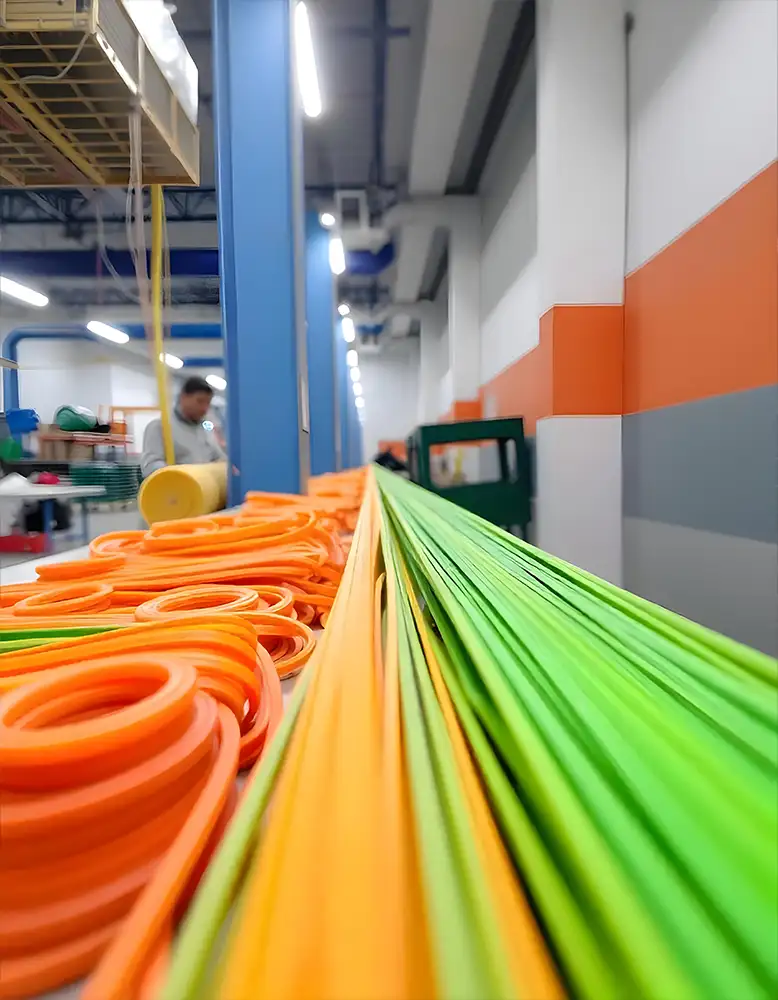In today’s rapidly evolving technological landscape, digital transformation has become a critical component for businesses across various industries. The rubber industry is no exception. Companies like PT. Putrarimba Jaya are leading the charge in integrating digital technologies to enhance their operations. But what exactly does digital transformation mean for the rubber industry, and how is it reshaping the sector? Let’s dive into the key impacts and changes brought about by this transformation.
1. Enhanced Production Efficiency
One of the most significant impacts of digital transformation in the rubber industry is the enhancement of production efficiency. By adopting advanced technologies such as IoT (Internet of Things) and AI (Artificial Intelligence), rubber companies can now monitor and optimize their production processes in real-time. Sensors and smart devices collect data from machinery and production lines, providing valuable insights that help in reducing downtime and improving overall efficiency.
For example, PT. Putrarimba Jaya has implemented IoT-based systems that track equipment performance and predict maintenance needs before they become critical issues. This proactive approach not only minimizes disruptions but also extends the lifespan of machinery. As a result, companies can achieve higher production rates and better quality control, meeting the increasing demands of the market more effectively.
2. Improved Quality Control
Digital transformation has also revolutionized quality control within the rubber industry. Traditional quality control methods, which often relied on manual inspection and testing, are being replaced by automated systems that use advanced imaging and analytical technologies. These systems can detect defects and inconsistencies with greater precision and speed, ensuring that only the highest quality products reach the market.
PT. Putrarimba Jaya utilizes machine learning algorithms to analyze production data and identify potential quality issues early in the process. This technology allows for real-time adjustments to be made, reducing the likelihood of defective products and enhancing customer satisfaction. Improved quality control not only boosts a company’s reputation but also helps in maintaining compliance with industry standards and regulations.
3. Streamlined Supply Chain Management
The integration of digital technologies has transformed supply chain management in the rubber industry. Digital tools and platforms facilitate better coordination and communication between suppliers, manufacturers, and distributors. Technologies such as blockchain and cloud computing provide transparency and traceability throughout the supply chain, helping companies manage inventory more effectively and reduce costs.
PT. Putrarimba Jaya has embraced digital supply chain management solutions that enable real-time tracking of raw materials and finished products. This visibility allows the company to respond quickly to changes in demand and optimize its inventory levels. By streamlining supply chain processes, companies can minimize delays and ensure timely delivery of products to customers.
4. Data-Driven Decision Making
Another significant benefit of digital transformation is the ability to make data-driven decisions. The rubber industry generates vast amounts of data from various sources, including production, sales, and customer feedback. Digital tools enable companies to analyze this data and gain actionable insights that drive strategic decisions.
PT. Putrarimba Jaya leverages data analytics to understand market trends, customer preferences, and operational performance. By analyzing data from multiple sources, the company can make informed decisions about product development, marketing strategies, and resource allocation. Data-driven decision making helps companies stay competitive and adapt to changing market conditions.
5. Enhanced Customer Engagement
Digital transformation has also improved how companies engage with their customers. Digital platforms and tools enable more personalized and interactive customer experiences. From online ordering systems to digital customer support, companies can now provide better service and build stronger relationships with their customers.
PT. Putrarimba Jaya has developed a user-friendly online portal that allows customers to place orders, track shipments, and access support services. This digital approach enhances the overall customer experience and fosters loyalty. By leveraging digital technologies to engage with customers, companies can improve satisfaction and drive repeat business.

